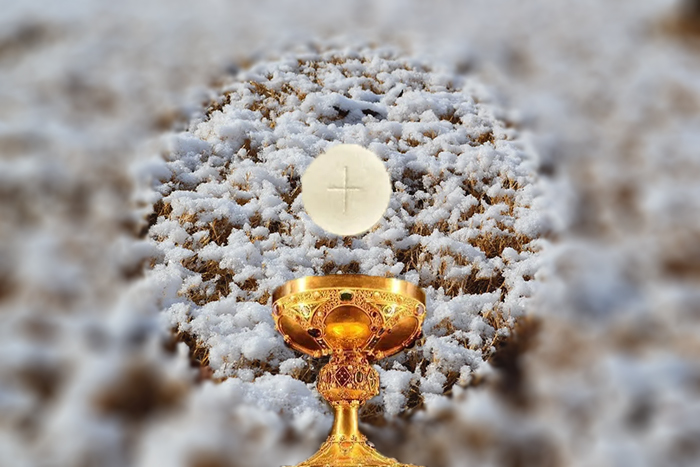
In today’s verse from Exodus, Moses speaks of the “bread from heaven” God provides his people. This manna is a central point in our Eucharistic celebration as John’s Gospel tells us that the Eucharist is the new manna, the new bread from heaven, the new way God gives us daily sustenance. Fr. Rolheiser writes that the Roman Catholic practice of daily Eucharist takes its root here. That is why too, in Roman Catholic spirituality, unlike much of Protestantism, the Eucharist has not been called “the Lord’s Supper” since it was understood not as an extraordinary ritual to commemorate the last supper, but as an ordinary, ideally daily, practice to give us sustenance from God. How does the Eucharist give us daily sustenance? As we saw in the earlier columns in this series, the Eucharist nurtures us by providing us God’s physical embrace (“the real presence”) and, like a Quaker-silence, it gives us a oneness with each other that we cannot give to ourselves. However, it nurtures us in yet a further way. It provides us with a life-sustaining ritual, a regular meeting around the word and person of Christ that can become the daily bread of our lives and our communities. How? Monks have secrets worth knowing. One of these is that a community sustains itself not primarily through novelty, titillation, and high emotion but through rhythm and routine, namely, through simple, predictable ritual processes. For example, a wise family will say to itself: “We will all be home at regular times, we will all eat together twice a day, and we will all be together in the living room at least once a day – even if it isn’t exciting, even if real feelings aren’t shared, even if some are bored, and even if some are protesting that this isn’t worthwhile. We will do this because, if we don’t, we will soon fall apart as a family. To stay together, we need regular, straightforward, predictable daily rituals. We need the manna of daily presence to each other. Otherwise, we’ll die.” In the Eucharist, God sustains us in just this way.
